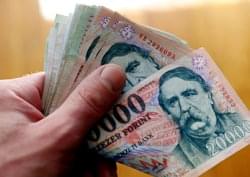Analysists of London: Hungary is lucky with the dramatic change of market expectations
Hungary raised $3.25 billion in its first foreign bond sale in 21 months, returning to the markets after Prime Minister Viktor Orban abandoned a quest for International Monetary Fund support.
The government is selling $2 billion of 10-year notes at a yield 345 basis points above U.S. Treasuries and $1.25 billion of five-year securities at a spread of 335 basis points, according to a person with knowledge of the plans who asked not to be identified because the information isn’t public. The yield on Hungary’s dollar bonds due March 2021 fell one basis point, or 0.01 percentage point, to 4.757 percent, the lowest in two weeks and 319 basis points more than the U.S. benchmark, by 5:18 p.m. in Budapest.
Hungary tapped the market after failing to obtain a flexible credit line from the IMF during a year of disputes over central bank independence and the sustainability of Orban’s measures to cut the biggest debt burden in the east of the European Union. The debt agency said Jan. 14 it plans to issue between 4 billion euros ($5.3 billion) and 4.5 billion euros on international markets in 2013 to help repay 5.1 billion euros in foreign-currency liabilities.
“They’re finally showing they have the ability to access the international bond market,” Esther Law, a London-based emerging-market strategist at Societe Generale SA, said by phone today. “It should be positive for Hungary, also for local debt in terms of relieving pressure on local issuance.”
Forint Bonds
Yields on Hungary’s five-year forint-denominated bonds fell seven basis points to 5.642 percent, the lowest in more than seven years and down from a peak of 10.84 percent in January 2012. The forint gained 0.2 percent to 291.3 per euro, the best performance among more than 20 emerging-market currencies tracked by Bloomberg and paring earlier losses of as much as 0.6 percent.
Hungary hired BNP Paribas SA, Citigroup Inc., Deutsche Bank AG and Goldman Sachs Group Inc. to hold a benchmark sale, the Debt Management Agency said in an e-mailed statement today.
Aviva Investors Ltd. was planning to buy one of the Hungarian bonds on offer as the reported terms were “fair value,” Jeremy Brewin, who helps oversee more than $5 billion of emerging-market fixed-income assets as a portfolio manager, said by phone from London today.
Hungary, which will hold parliamentary elections next year, doesn’t need a bailout and will tap the international market instead, Orban said in Brussels on Jan. 30.
Susceptible
The country’s financing costs tumbled last year as Orban took steps to reduce the country’s debt and the U.S. Federal Reserve’s bond buying program boosted demand for higher-yielding assets. Yields on forint-denominated debt plunged as the Magyar Nemzeti Bank lowered its benchmark rate by a cumulative 1.5 percentage points since August to 5.5 percent, the lowest since 2010.
Hungary should take the opportunity to issue before a possible increase in U.S. Treasury yields this year cuts the premium on emerging-market securities, Aviva’s Brewin said.
Related news
Related news
Perfume, LEGO rose and eternal rose are also available at eMAG before Valentine’s Day
🎧 Hallgasd a cikket: Lejátszás Szünet Folytatás Leállítás Nyelv: Auto…
Read more >






